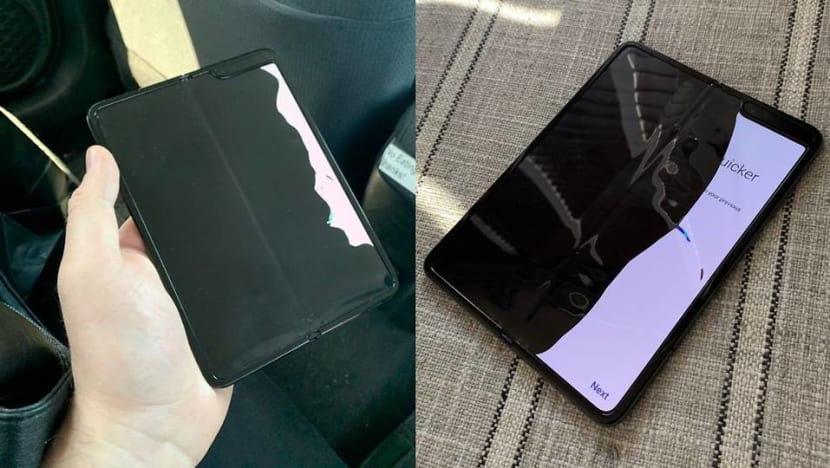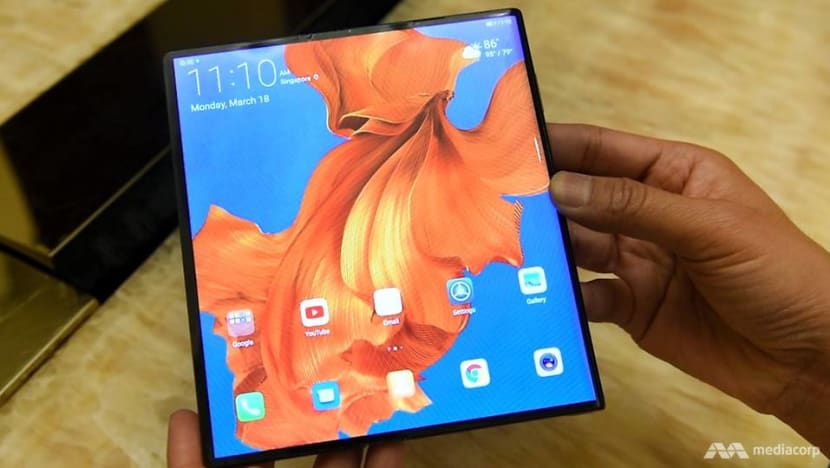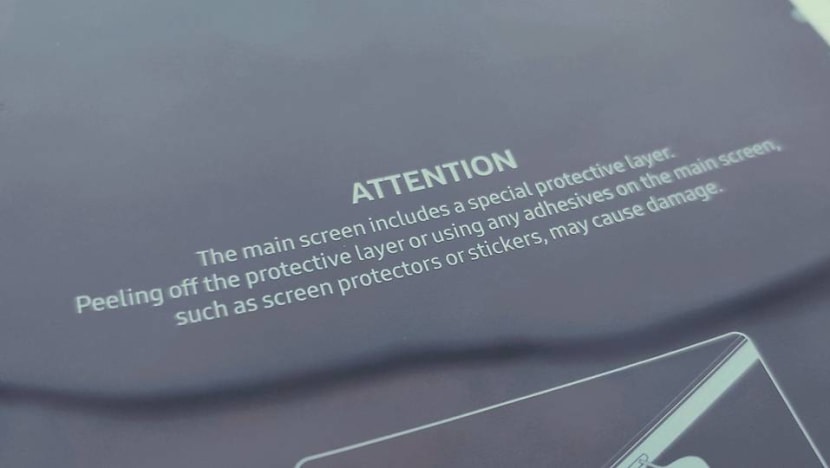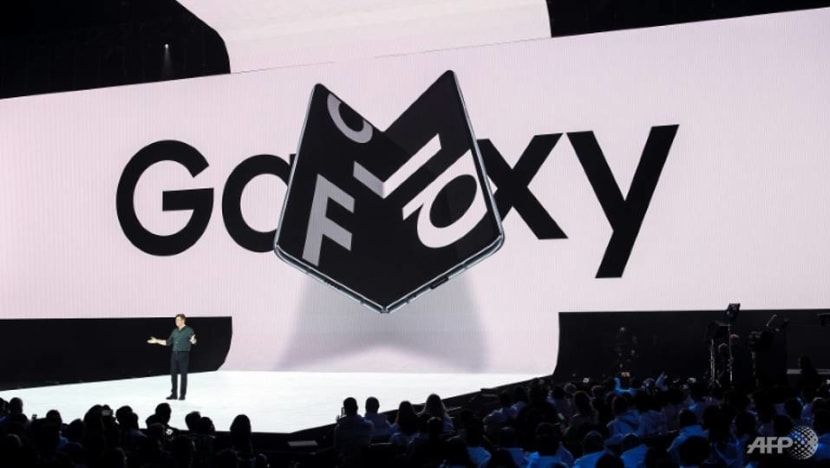commentary Commentary
Commentary: Samsung’s gigantic mistake over the Galaxy Fold
The Galaxy Fold was just a blunder in timing, says China commentator Tom McGregor.

Photos circulating on social media show damaged Samsung Galaxy Fold phones.
BEIJING: This week was supposed to be a game-changer for Samsung.
In the rush to get a 5G smartphone to the market first before all other rivals, South Korean giant Samsung took a major gamble and lost.
On Monday (Apr 22), Samsung announced that the retail launch of its first 5G handset, the Galaxy Fold, will be delayed for an unspecified period of time.
The folding handset was initially set to officially go on sale on Apr 26. The company had distributed it to tech reviewers and newsrooms all around the world.
“We want our customers to have the best experience possible which is why, after initial feedback, we have decided to delay the release of the category-changing Galaxy Fold to make sure it measures up to the high standards we know you expect from us,” Samsung said in a press statement.
We plan to announce the [new] release date in the coming weeks.
SCREEN FLAWS AND MORE
Chinese rival Huawei’s plans to launch its folding handset the 5G Mate X to the public no earlier than June 2019 may have led Samsung to accelerate its own release.
Huawei’s Mate X is expected to have hyper speed and memory which can download a movie in just “three seconds,” according to Huawei CEO Richard Yu who stood onstage at the 2019 Mobile World Congress in Barcelona last month.
But unfortunately for Samsung, after numerous complaints from reviewers, the South Korean company has had to shift gears and back-pedal.
READ: Huawei still the standard bearer for 5G, a commentary

Those who received the first few units of the Galaxy Fold had complained the device lacked durability after some had unwittingly knocked out the screen when pulling off its protective plastic layer.
Tech reviewers who tested the device said the foldable phone was breaking down after just a few days’ use. Some of the problems with the display were however avoidable.
Samsung had warned users not to peel off the “special protective layer” on the main screen. But surely what stands between complete destruction of a phone and it being fully functional cannot be a flimsy plastic layer?
In an official statement released on Apr 17, Samsung said that they will make stronger screen protectors and find better ways to address the issue.
Regardless, Samsung made the right move in delaying its Galaxy Fold launch, at least from a business perspective. Delivering a flawed product that costs customers around US$2,000 would lead to more severe consequences.

SAMSUNG STRUGGLES IN CHINA
The delay of the Galaxy Fold may cause many to lose faith in Samsung, but their outlook in China wasn’t great in the first place, despite having made huge investments in the country, opening up factories and distribution centres, and spending billions of dollars in an attempt to inspire brand loyalty.
The tech giant also reportedly invest US$7 billion in the expansion of their semiconductor factory in Xi’an in 2017, at a time when the company was making strategic moves to boost its presence in China.
But sales have faltered in the China market ever since. The company recorded its worst quarterly performance in China last year, selling only 700,000 units in the third quarter, a paltry 0.7 per cent market share in the nation.
Meanwhile Chinese smartphone makers Huawei, Oppo, Xiaomi and Vivo enjoyed a stronger following, while Apple, despite declining sales, still scraps by with a sizable fanbase.
In December last year, Samsung said that it’s shutting down its Tianjin plant amidst rising competition from lower-cost rivals.
Many Chinese have also stopped purchasing and gotten rid of Samsung devices after social media stories of its Galaxy Note 7 exploding went viral three years ago.
SEARCHING FOR SOLUTIONS
Admittedly, the Galaxy Fold will not restore Samsung’s reputation even if they fix the product flaws and schedule a firm new launch date.
Samsung will remain the king of smartphones in South Korea, but in China, their devices have little appeal on account of these being much more expensive than their Chinese competitors, and of lower quality than Apple.

The price tag is just too high. While Huawei’s Mate X would be going for sale at US$2,299, it has other plans to sell less expensive 5G phones.
Despite recent blunders, Samsung is by no means on the brink of collapse. They can still continue to sell top-notch high-definition large-screen televisions, an area in which they thrive.
The company could explore developing 5G big-screen televisions, allowing viewers to watch any broadcast channel in the world in real-time. An American living in Tokyo could tune in to the local news station from Buffalo, with high-quality streaming.
Samsung already has factory lines that could set the stage for a mass production of such 5G television sets. The company still has access to large cash reserves, many talented employees, and is probably nimble enough to restructure.
The Galaxy Fold was just a mistake in timing.
Tom McGregor is a commentator on Asia-Pacific affairs based in Beijing.















